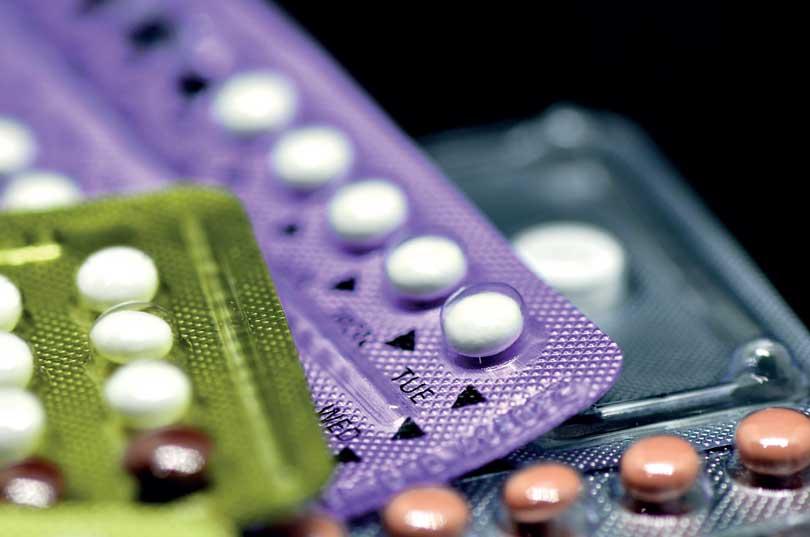18 May 2023 - {{hitsCtrl.values.hits}}

 How fast will I regain my fertility after coming off the pill?
How fast will I regain my fertility after coming off the pill?
“When you take the pill, you are effectively sending your ovaries off to sleep, so as soon as you stop taking the pill, they’ll start to wake up again,” says one Gynaecologist.
Contraception methods and techniques to prevent unintended pregnancies have been in existence over the years. Among the commonest barrier methods such as vasectomy and condoms, the contraceptive pill, which contains synthetic hormones, which prevent ovulation in the female; is seen as an appealing method.
Yet, many women think twice before taking the pill with more and more conversations taking place on its side effects.
Oral contraceptives are second after sterilisation in effectiveness in avoiding pregnancy.
Most of the contraceptive pills taken contain oestrogens and/or progesterone and they act by preventing the ovaries from producing eggs (ova).
They also have some effect in making the lining of the womb less suitable for implantation of the ovum and may make the mucus in the canal of the cervix less easily passable by sperms.
Besides its effectiveness, the fear of side effects such as weight gain, complications in childbirth, nausea, loss in libido, migraine, and excess food cravings were a few main causes that discouraged women to go for the pill.
However, recent research on the contraceptive pill, which includes statements from experienced gynaecologists, has seemingly encouraged more women to take the pill due to better awareness.
How does the Pill work?
Dr Kalinga Nanayakkara, gynaecologist and obstetrician, spoke to the Daily Mirror regarding this concept.
Unlike in the 20th century, pregnancy prevention methods are discussed widely which creates awareness and helps men and women to choose the suitable prevention method.
In that case, the contraceptive pill is a preferable option by majority of the women due to its reliable effectiveness.
“Despite the perception of side effects of it, women still come forward to choose this option,” he said.
He mentioned that most women are satisfied with the pill option as it is well guaranteed of preventing pregnancy.
“Except for nausea and vomiting which occurs due to oestrogen dosage, most of the other symptoms have only been misunderstood as side effects,” Nanayakkara said.
“If it is a normal dosage pill, it must be taken continuously according to the instructions. However, taking the pill on a strict routine and discontinuing the pill if any allergy occurs is important,” he said.
When asked if there are any possibilities of seeing a male contraceptive pill anytime soon, he said that there is no experiment yet for such a male pill.
Therefore condoms and vasectomy are the most effective sperm prevention for men so far, he said.
Weight Gain / Loss
“One of the commonest misconceptions is that weight gain happens for women when on the contraceptive pill,” said Dr Nanayakkara.
Although some types of hormonal contraceptives have been associated with weight gain, taking combined hormonal contraceptive pills (the most common type of birth control pill) has not been associated with weight gain.
“Every individual has unique side effects and experiences with medication. If a woman is having unacceptable side effects from a certain pill, she may have a different experience with a different formulation or a different form of hormonal contraception, such as progestin-only implants or intrauterine devices.
Loss in Libido
Overall, birth control is not associated with a significant change in sex drive.
However, behavioural and social research has demonstrated trends in changes in sexual behaviour when people co-habitat, have children and maintain long-term relationships that may also be attributed to contraception. Most probably the length/depth of the relationship, age and life stage are the factors causing differences in sex drive.
The pill does not contribute to increasing or decreasing libido levels. Yet if there is an obvious change noticed in this matter after the entry of the pill it is advisable to go for consultation or to change the pill.
Menstrual Cycle
Another common concern for women is whether taking the pill once will leave them incapable of conceiving for a lifetime.
“The pill does not have any long-term effects on the menstrual cycle. The cycle will restart once the woman stops taking the pill and will not make it harder to get pregnant later unless the pill is being taken continuously which blocks ovulation.
“Once the pill is discontinued the reproductive system gets back to its usual functioning by preparing for reproduction. However, as the pill is reversible there is no way of completely losing fertility.
New advancements in contraception?
According to the United States National Library of Medicine, new contraceptive options approved by the FDA in the past two years include a year-long vaginal ring, a progestin-only pill that is as effective as combined oral contraceptive pills, a new hormonal patch and a vaginal gel that may also help prevent sexually transmitted infections.
There are still areas of contraceptive research that are very much unknown including biomarkers of contraceptive efficacy or side effects, how individuals or groups metabolise contraception, initiation around reproductive life events or the discontinuation of other methods.Contraception must be discussed within the context of individual goals and context.
New contraceptive options approved by the FDA in the past two years include a year-long vaginal ring, a progestin-only pill that is as effective as combined oral contraceptive pills, a new hormonal patch and a vaginal gel that may also help prevent sexually transmitted infections.
There are still areas of contraceptive research that are very much unknown including biomarkers of contraceptive efficacy or side effects, how individuals or groups metabolise contraception, initiation around reproductive life events or the discontinuation of other methods.
10 Jan 2025 1 hours ago
10 Jan 2025 1 hours ago
10 Jan 2025 2 hours ago
10 Jan 2025 3 hours ago
10 Jan 2025 3 hours ago